
Join Our Interest List for 2023.
Altum is working on plans for 2023! Join our interest list and we’ll keep you updated on the event details and agenda as we have them.
Altum Events
Connecting research funders to explore some of the most
important topics in global grant making.
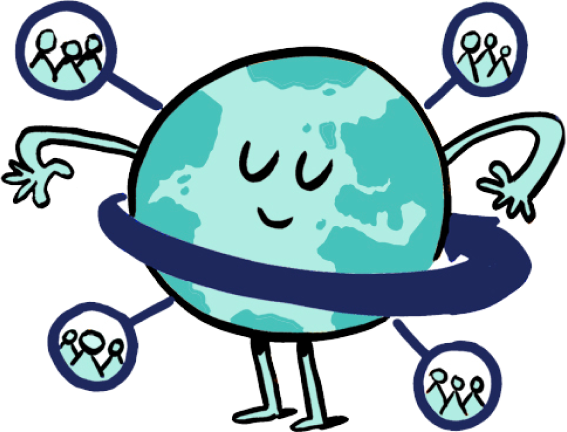
On September 7, 2022 the first Forum on Global Grants Management was held in Strasbourg, France. Research funders spent the day working through some of the most important topics facing scientific grant makers, namely: Open Science, Collaboration & Joint Funding, and the importance of Impact and Outcome Reporting. The group explored the connections between these concepts and developed a list of ideas to propel these topics forward.


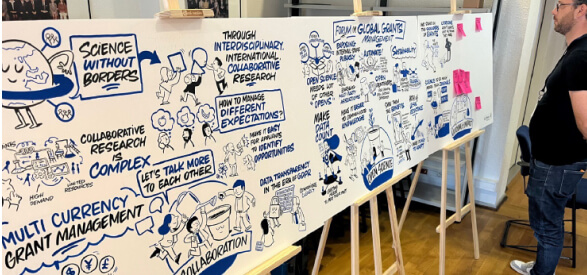

We captured the energy, excitment and outcomes of the forum in the most unique way.
Research funders spent the day working through some of the most important topics facing scientific grant makers, namely: Open Science, Collaboration & Joint Funding, and the importance of Impact and Outcome Reporting. The group explore the connections between these concepts and developed a list of ideas to propel these topics forward. Those ideas were captured graphically by a visual storyteller.
Collaboration between funders is one of the biggest opportunities facing grant makers today. This topic explored what it means to collaborate and how to implement joint funding programs more effectively. Because we know that multiple benefits arise when funders collaborate and pool their knowledge and resources.

Communication can take many forms (and forums). Both online and offline. Face-to-face events such as the Forum on Global Grants Management are needed to give grant makers a platform to share ideas. To ensure the conversation continues, attendees agreed that periodic, virtual checkpoints were a good idea to continuously share progress and best practices. In terms of systems, delegates made it clear that a research grants management system should support joint programs – from application set-up through deliverable reporting.
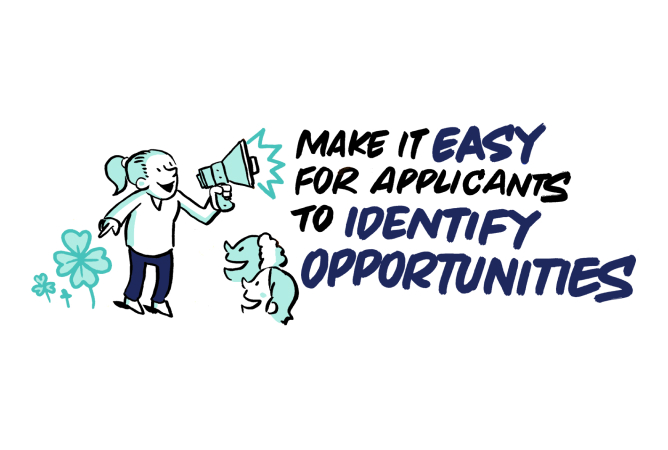
Ask a researcher how they’d like to spend their professional time: Writing applications or in the lab? It probably comes as no surprise that scientists would rather spend their time on science. A simple, easy to complete grant application will yield more proposals and make your researchers happy. But things can get tricky when two or more funders are working together on a funding program. When running joint funding opportunities, funders should identify those application requirements that are essential to you collectively and individually. Strip away anything extraneous and focus on what’s essential to drive the highest quality submissions.

The Covid-19 pandemic showed the world what’s possible when institutions, researchers, and public and private funders all come together to tackle a daunting scientific challenge. At The Forum on Global Grants Management, attendees coined the term “science without borders through interdisciplinary, international, collaborative research.” Sure, that’s a mouthful, but it encapsulates the core tenets required for joint funding on a global scale. ‘Without borders’ means that funders from various countries can partner and work together. ‘Interdisciplinary research’ means experts from complementary fields join forces to deliver breakthroughs. And ‘collaborative’ describes a free exchange of ideas, joint problem solving, and open communication.
Attendees agreed that Open Science relies on ‘many other opens’ – most notably, open metadata, infrastructure, and governance. Metadata and DOIs (digital object identifiers) for publications, grants, and research outputs, are essential to illuminate the connections that exist between funding and outcomes. That metadata runs on infrastructure powered by organizations such as Crossref, ORCID, ROR, and DataCite. And finally, open science needs governance such as policies that define the use of PIDs (Persistent Identifiers) within the research ecosystem. There’s a lot to do, but reason for optimism. Case in point: 80% of applicants on ProposalCentral now have an ORCID ID. That’s up from 20% less than five years ago.
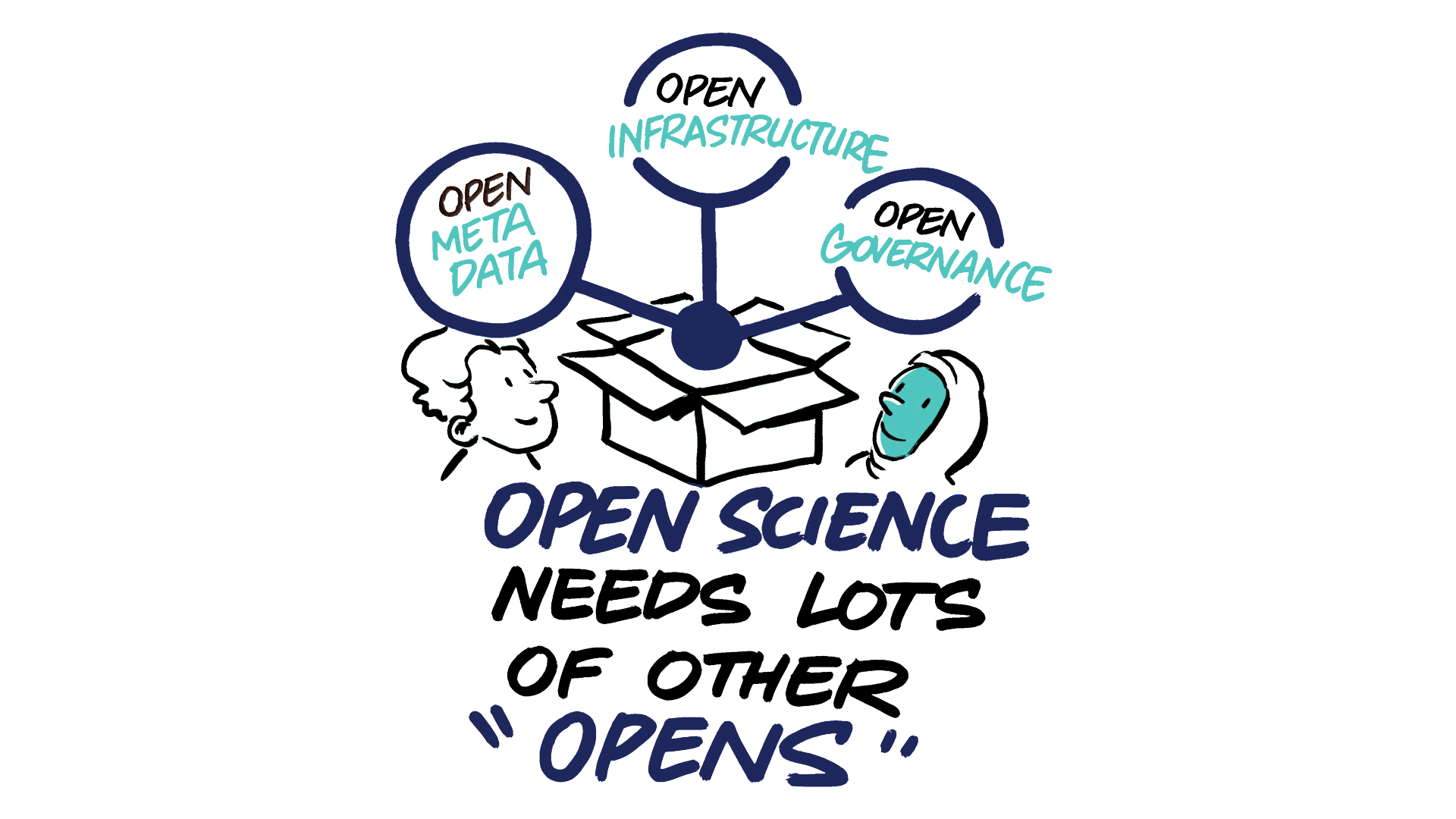
Attendees agreed that Open Science relies on ‘many other opens’ – most notably, open metadata, infrastructure, and governance. Metadata and DOIs (digital object identifiers) for publications, grants, and research outputs, are essential to illuminate the connections that exist between funding and outcomes. That metadata runs on infrastructure powered by organizations such as Crossref, ORCID, ROR, and DataCite. And finally, open science needs governance such as policies that define the use of PIDs (Persistent Identifiers) within the research ecosystem. There’s a lot to do, but reason for optimism. Case in point: 80% of applicants on ProposalCentral now have an ORCID ID. That’s up from 20% less than five years ago.
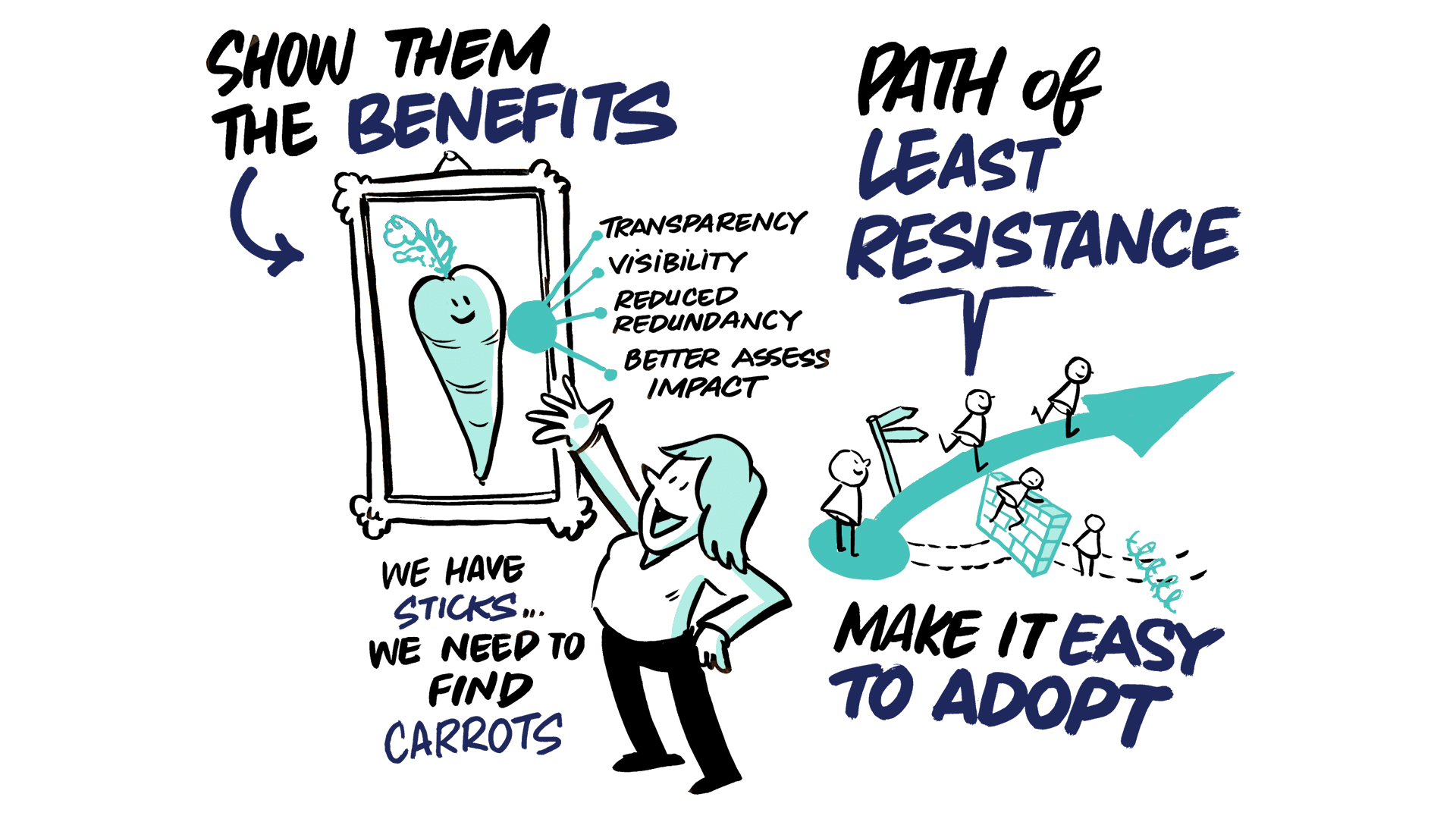
For open science to flourish, researchers need to adopt open science principles. To drive adoption, researchers need to understand the benefits of using an ORCID ID when applying for funding or taking the time to cite their grant when they publish. To get the flywheel moving, Funders need to take an active role in promoting the benefits of open science to researchers. Here are but a few: Researchers who use an ORCID ID when applying for funding save time with the application process. Second, all their application data is synced back to their ORCID profile. Finally, they can sleep well at night knowing that they will get credit for their outcomes. Read more about Altum’s commitment to open science.
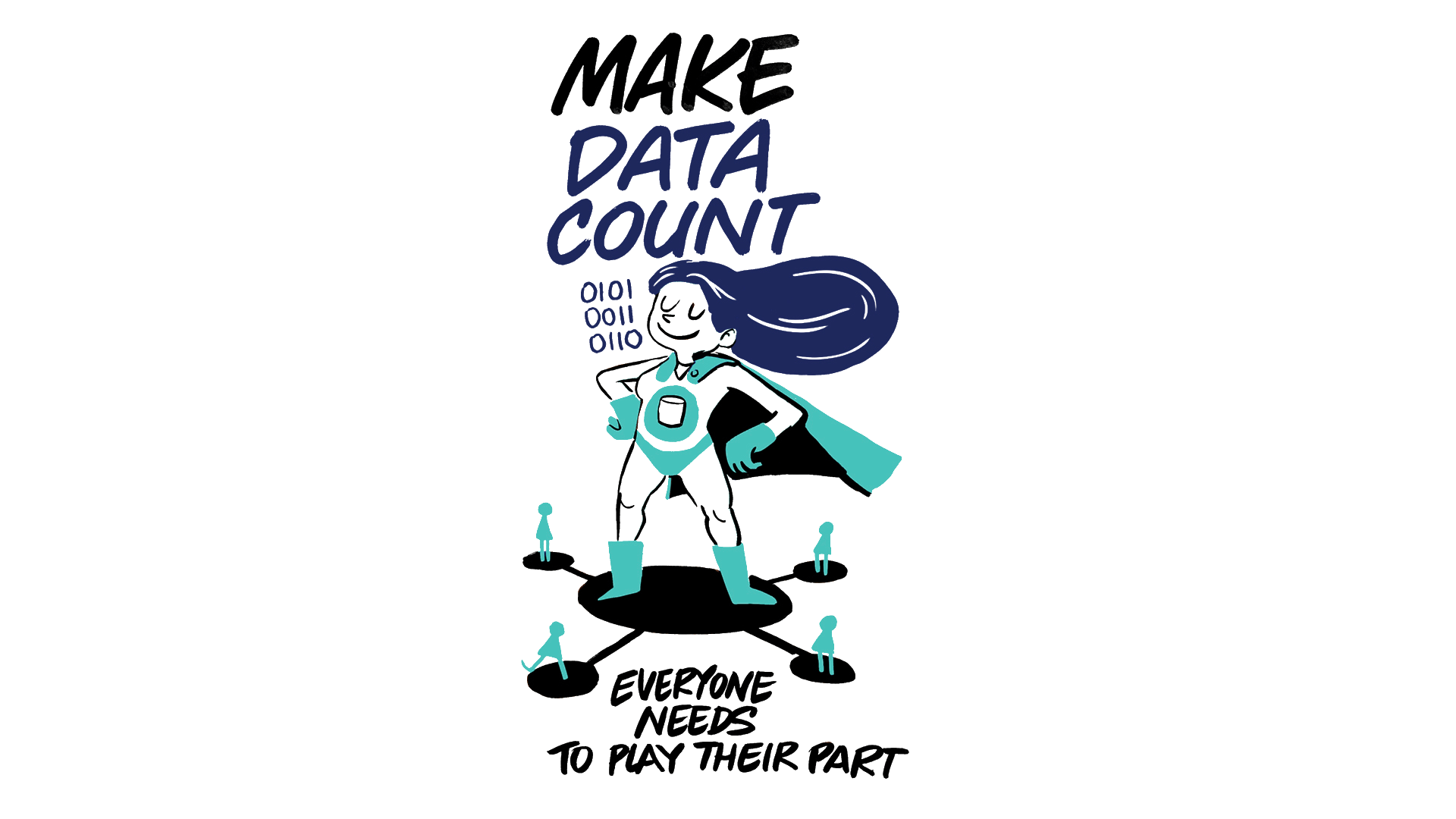
In the research ecosystem, data is the currency we use to measure results, outcomes, and impact. But data is only as valuable when it’s accurate and accessible. Delegates at the forum identified that all constituents in the research ecosystem have a shared responsibility to “play their part” and be stewards of data. Whether fielding applications, writing grants, or publishing research findings, it’s imperative that all data owners strive to produce shareable results that are accurate.
While missions of research funding organizations are unique, one common attribute they share is the desire to demonstrate and communicate impact. Everything we do from growing donations, to identifying researchers, and writing grants is a means to that end. At the Forum on Global Grants Management, conversations revolved around the various types of impact, the role failure plays in moving research forward, and how science goes way beyond publication.
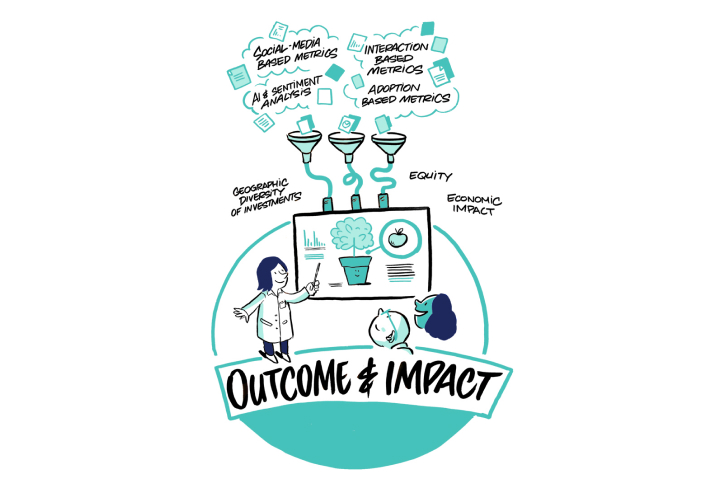
Traditionally, publication in a scientific journal represented the apex of achievement in research. And while publication still plays a pivotal role, impact and outcomes can now take many different forms and can be measured in many ways. Take for example sentiment analysis of social media data - the use cases for which are far reaching. Imagine: by tracking and measuring a constant stream of digital chatter, funders and researchers can determine ‘what’s trending’ in specific scientific circles, track who among us is ‘an influencer,’ even monitor partners to identify joint funding opportunities long before they are funded.
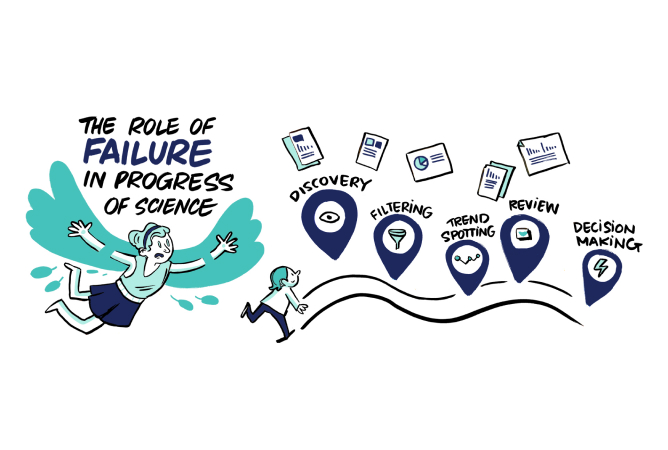
Bill Gates said, “It’s fine to celebrate success but it is more important to heed the lessons of failure.” The flip side of impact and outcome are failure analysis and lessons learned. Attendees noted that it’s important to understand the role of failure in the progress of science. By understanding why certain programs, awardees, and teams succeed or fail provides critical input to future funding decisions. Grantmakers who create a feedback loop from post-award back to funding strategy are likely to see a boost to outcome and impact success rates over time.
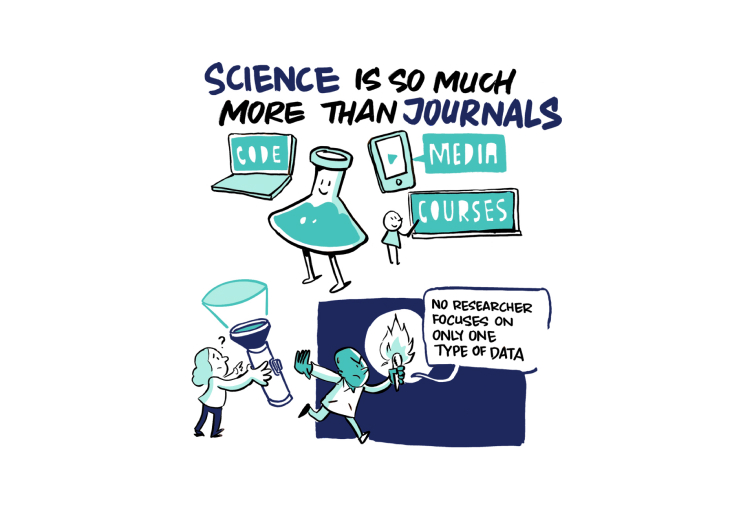
70% of global commercial businesses have fully embraced digital transformation. The research sector is not far behind. While many funders still rely on paper-based application programs, the majority have shifted to online solutions. Similarly, PIs and research teams are sharing their results through many new channels – from open access journals to open-source code to the metaverse. It’s not enough to just capture attribution from publications back to grants and awardees (that’s the floor). Soon, grant makers will need to map the connections from their grants and awardees to dozens of new and novel forms of science.
An event is only as good as the actions and education you take with you. At the end of the day, delegates tackled these two questions.
The quality of conversation and the actionable ideas identified at the first Forum on Global Grants Management were evidence that there is a need for a forum of exchange in grant making practices. In this inaugural session, we planted the seed for future growth. I’m excited to build on what we’ve started.
Director of Science, Policy & Communications at HFSP
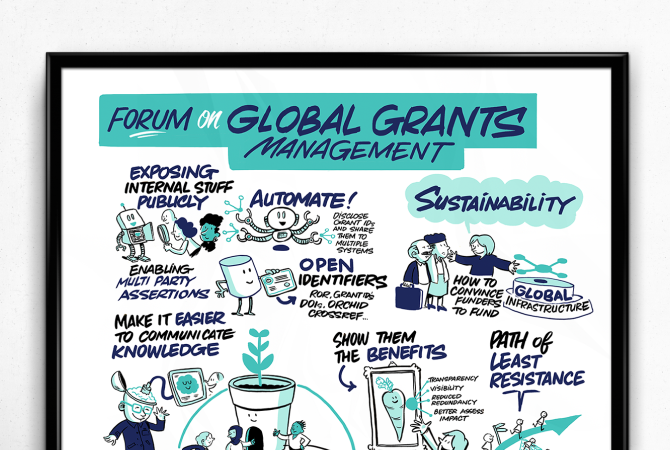
Get the poster from the Forum on Global Grants Management we’ve been referencing. You can download a very high res (13.8 MB) version of the poster below.

Altum is working on plans for 2023! Join our interest list and we’ll keep you updated on the event details and agenda as we have them.